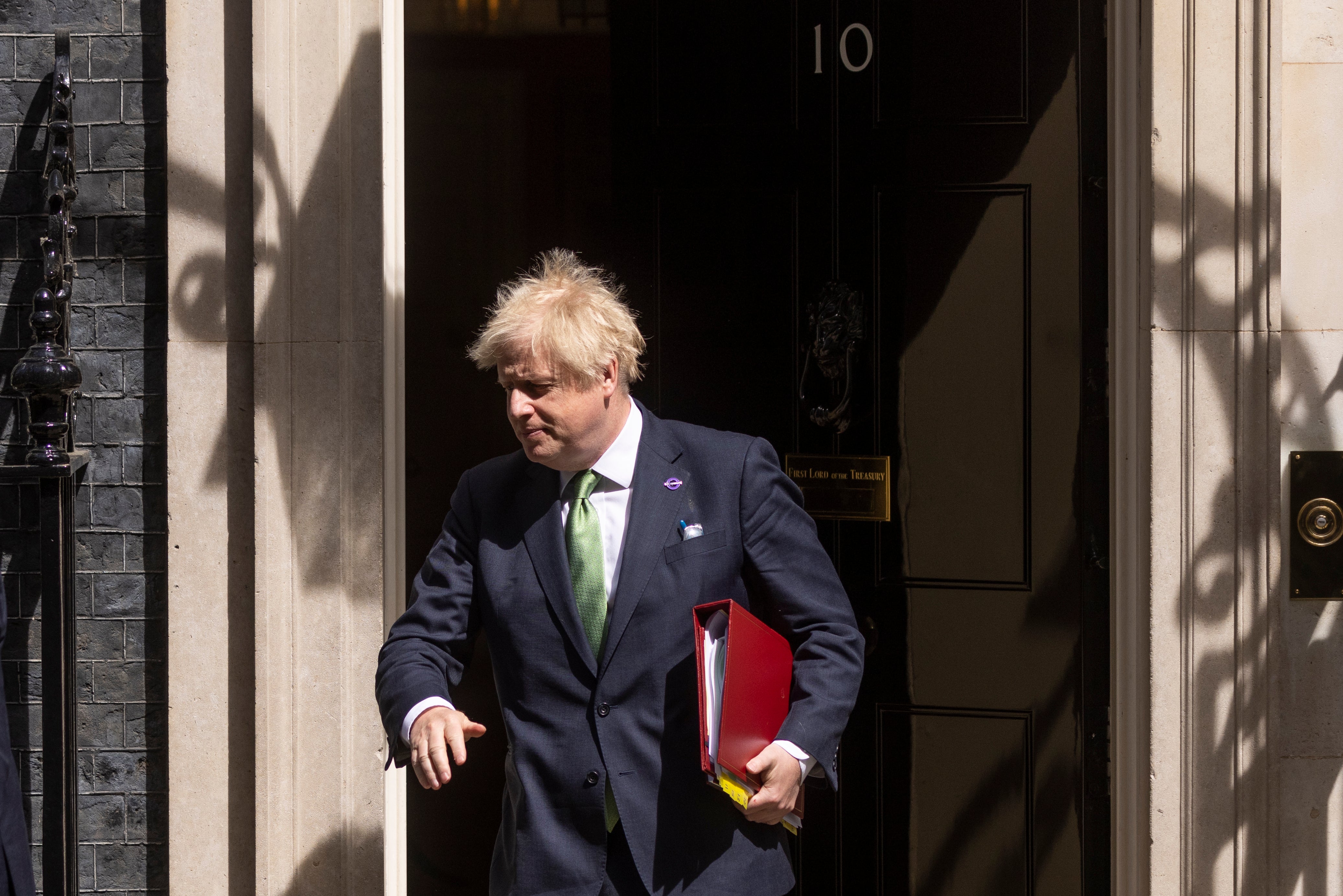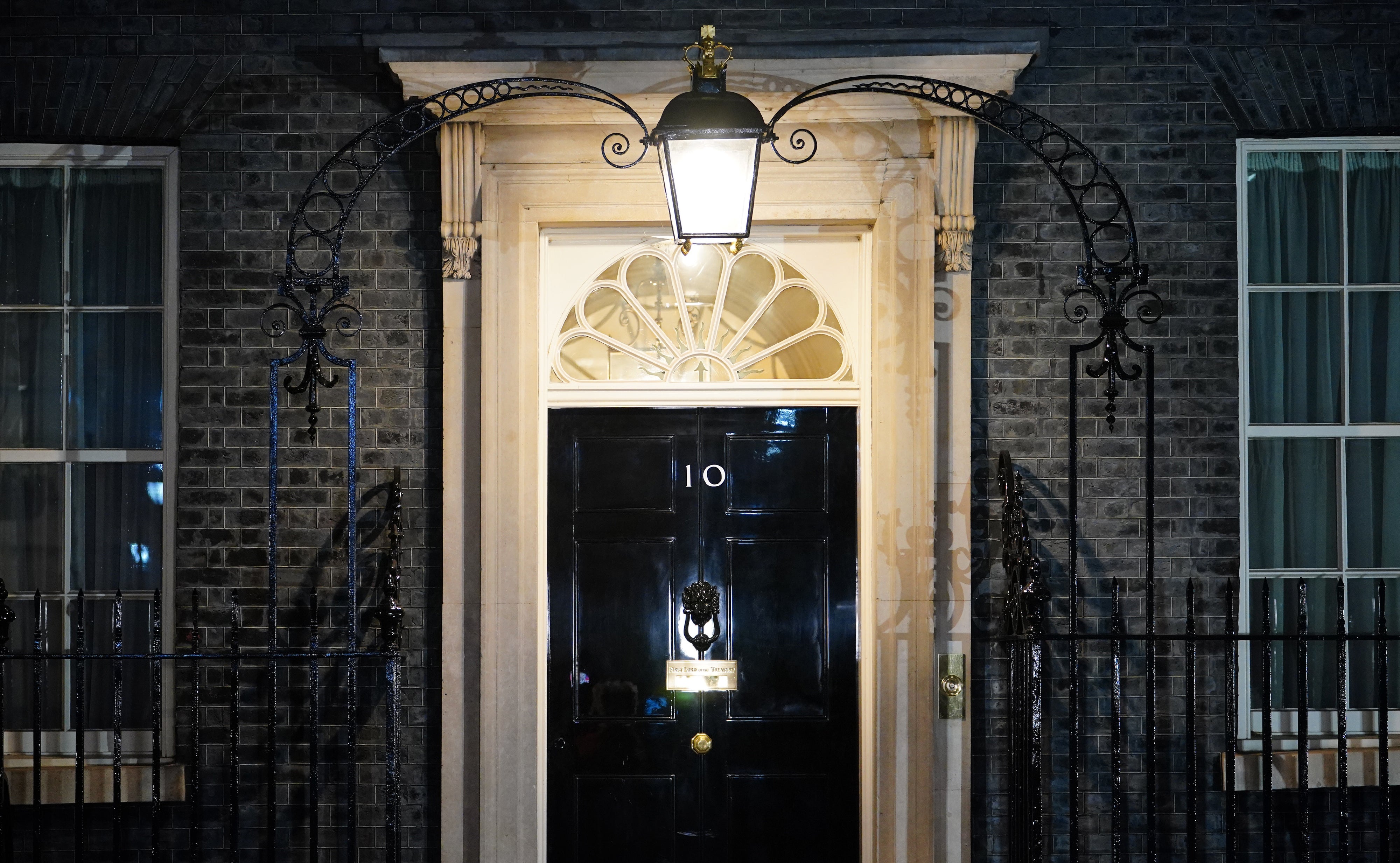Partygate: Why did some people escape fines for Downing Street lockdown parties?
Downing Street staff reportedly angry over police decision not to fine prime minister for some gatherings he attended
Your support helps us to tell the story
From reproductive rights to climate change to Big Tech, The Independent is on the ground when the story is developing. Whether it's investigating the financials of Elon Musk's pro-Trump PAC or producing our latest documentary, 'The A Word', which shines a light on the American women fighting for reproductive rights, we know how important it is to parse out the facts from the messaging.
At such a critical moment in US history, we need reporters on the ground. Your donation allows us to keep sending journalists to speak to both sides of the story.
The Independent is trusted by Americans across the entire political spectrum. And unlike many other quality news outlets, we choose not to lock Americans out of our reporting and analysis with paywalls. We believe quality journalism should be available to everyone, paid for by those who can afford it.
Your support makes all the difference.Questions are mounting over why some politicians and civil servants who attended Downing Street events were fined for breaking Covid laws, but others weren’t.
Junior staff are reportedly angry at being given fixed penalty notices (FPNs), while the prime minister was not punished over the same gatherings.
But the complex nature of coronavirus legislation, which changed numerous times during the period where the parties took place, means that Boris Johnson may have had a “reasonable excuse” in law that prevented him being fined.
The Metropolitan Police has not named any individuals found to have broken Covid laws, and refused to give a breakdown of how many people were fined over which gatherings.
Overall, 126 fines were given to 83 people, over events held on eight dates between May 2020 and April 2021.
How did the law work?
A set of laws called the Health Protection Regulations were changed throughout the pandemic to enforce different restrictions, including national lockdowns.
They set the legal limits on gatherings, but also provided defences and exemptions.
At all times, a defence of “reasonable excuse” was built into the law and lists of examples given in legislation were not exhaustive.
The wording of the laws in place during a series of Christmas parties and leaving dos in December 2020 and January 2021, for example, read: “A person commits an offence if, without reasonable excuse … [they] contravene a restriction.”
It means that police had discretion to decide whether someone had broken the law, or had a legal defence for doing something that appeared to be a Covid breach on the face of it.
What laws were broken during Partygate?
Because different gatherings happened at different stages of restrictions, the Metropolitan Police fined people for breaching six different offences.
For the 20 May 2020 “bring your own booze” garden party, which the prime minister said he attended for 25 minutes thinking it was a “work event”, attendees were fined for “being outside of the place they were living without reasonable excuse”.
Because Downing Street is the prime minister’s official residence, he was not in the scope of the offence but staff and any other non-residents were.
Events held on the remaining seven dates that saw fines handed out broke subsequent Covid laws, which restricted gatherings of different types.

What were the potential defences?
The flexible “reasonable excuse” defence was still in force, meaning police had to consider individual reasons for apparent breaches on a case-by-case basis.
There was also a broad exemption on gatherings that were “reasonably necessary for work purposes”, or “essential for work purposes”.
That is likely to be the core defence argued by many attendees at Downing Street gatherings, many of which followed the end of the working day and came at a time when political staff were routinely working in the office.
Why would some people but not others be fined for the same event?
There are several possible explanations. One is that some people had a “reasonable excuse” for attending while others did not, and another is that the event itself was deemed to change from legal to illegal by police at a specific point.
It is also possible that anyone resident in Downing Street may have been able to assert a “reasonable excuse” for their presence in parts of the building where illegal gatherings were taking place.
Adam Wagner, a human rights barrister who specialises in Covid laws, told the BBC: “The only explanation I can think is that a gathering can turn from one thing into another.
“Maybe it starts as, ‘Let’s raise a toast for our colleague and say a few words and then people stay on a drink into the evening.’
“So they may have decided that the gathering starts as one kind of gathering and then turns into another.”
Several of the events believed to have incurred fines were leaving dos for Downing Street staff, which began in the office.

What have police said about their reasoning?
Scotland Yard has refused to comment on individual cases but confirmed that it had given every person considered for a fine an opportunity to put forward a reasonable excuse for their presence at gatherings in written questionnaires.
A statement said that officers had looked at both the circumstances of the event and the “actions of the individual” concerned.
“Each line of enquiry looked at the date, the circumstances behind each event, and the actions of the individual, benchmarked against the legislation at that time, to establish whether their behaviour met the criminal threshold for an FPN referral to be made,” a statement said.
“We took great care to ensure that for each referral we had the necessary evidence to prosecute the FPN at court, were it not paid.”
Police first gathered evidence on an event, then carried out separate assessments for each person present.
In order to fine them, police said they needed a “reasonable belief that the individual had committed an offence under the regulations”.
They looked at whether the gathering itself met an exception under Covid laws, and if it didn’t, “whether the individual had a reasonable excuse for participating in that gathering”.
Has the Metropolitan Police treated the Downing Street gatherings differently to normal members of the public?
Police across the country had a policy against retrospective Covid investigations throughout the pandemic, meaning that the vast majority of fines were handed out on the spot by police officers.
That meant that people were frequently issued with penalties without formal evidence gathering or interviews, and had to risk prosecution in order to contest them.
Because the Partygate probe was a rare retrospective investigation, the process has been much more formal and potentially resulted in people having a better chance of putting forward a defence before being given a fine.
Kirsty Brimelow QC, a human rights barrister who has represented people fighting Covid fines, told The Independent: “What I saw in cases up and down that country is that the ‘reasonable excuse’ part was never applied – police would only look at exemptions around the gathering itself.
“In the cases I looked at it was ‘well, if you consider you’ve got a defence you can take your chances in the magistrates court’.”
Scotland Yard said its detectives had worked through 204 questionnaires, which were created specifically for the investigation, as well as 345 documents and 510 photographs and CCTV images.
It said officers “took great care to ensure that for each referral we had the necessary evidence to prosecute the FPN at court, were it not paid”.
Ms Brimelow said that normally police would consider evidence only at the point where someone contested a fine and they decided whether to pursue it in court.
“That is a higher bar than I saw applied up and down the country,” she added.
“FPNs would be issued if there was as reasonable belief of a breach, rather than having all the evidence ship-shape if it went to court.
“The Met has applied the regulations, but they’ve applied it in a way which is setting the police a higher bar before issuing a FPN.”



